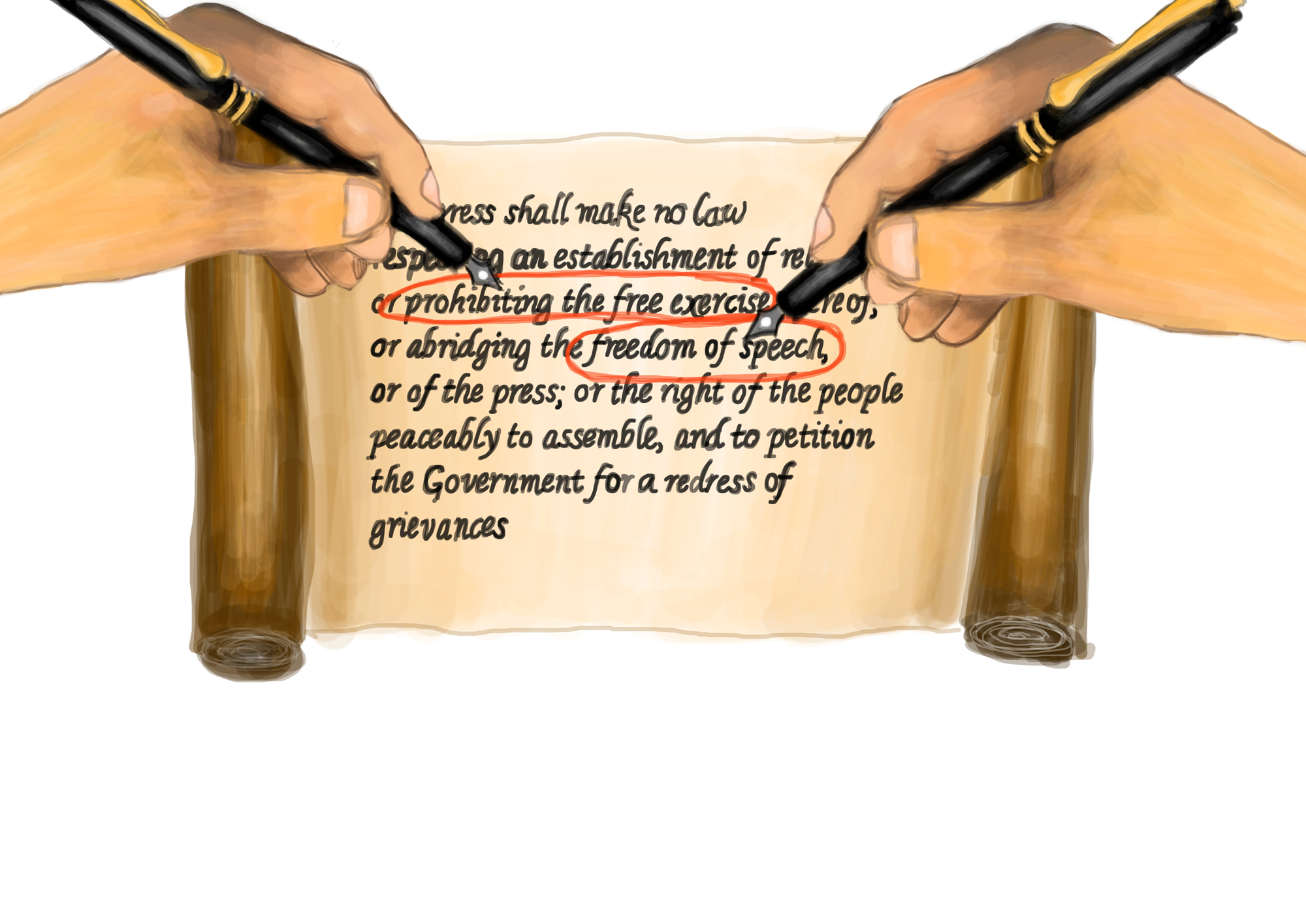Aram Ghoogasian: State Department’s anti-Semitism definition stifles free speech

(Annie Chan/Daily Bruin)
By Aram Ghoogasian
Oct. 30, 2015 12:58 a.m.
A country over 7,500 miles away is once again making waves at the University of California.
Even after a resolution calling on the UC to divest from companies doing business in occupied Palestine has come and gone, Israel has managed to remain at the center of campus discourse.
Some of the UC Regents graced our campus with their presence Monday to field student opinions on the UC’s anti-discrimination policy. Although UC Student Regent Avi Oved told the Daily Bruin Editorial Board in a meeting that the conversation was intended to revolve around as many underrepresented groups as possible, the way the UC will define anti-Semitism has become the focal point.
Many Jewish students and UC President Janet Napolitano want the UC to adopt the State Department’s definition of anti-Semitism, a definition that considers demonizing, delegitimizing and applying double standards – also known as the three D’s – to Israel to be anti-Semitic. As of now, the UC’s resolution does not borrow this language.
Adopting this definition would be nothing short of an assault on free speech and an affront to pro-Palestinian activism. This ambiguous definition leaves too much up to interpretation and can be used as a weapon to suppress the views of pro-Palestinian student activists by labeling them as anti-Semitic, even if said activists are themselves Jewish.
Pro-Palestine student activists, Jewish or otherwise, that support the Boycott, Divestment and Sanctions movement, a nonviolent push to end the Israeli occupation of Palestine and discrimination against Palestinians through economic means, would likely be at the highest risk of being silenced.
The BDS campaign is focused on human rights violations in Israel alone, which means that, under the three D’s criteria, it could possibly be considered anti-Semitic since some may think it applies a double standard to Israel, even though the Department of State has stated it has no objection to BDS. Current USAC President Heather Rosen appropriated this logic when she, as Financial Supports Commissioner, presented a list of countries the UC invested in during last May’s divestment hearing and asked why students weren’t focused on divestment from those entities as well.
But to be effective, advocacy groups and campaigns must have relatively narrow focuses with clear objectives, not sprawling goals that target a myriad of entities that engage in human rights violations. Focusing on every country is a surefire way to accomplish absolutely nothing.
Regardless of how fallacious and ridiculous this argument is, it has had real effects on college campuses across the country. Palestine Legal’s recently published report outlined the suppression of pro-Palestinian speech through bureaucratic hurdles set up by college administrators, harassment by police and fear mongering by pro-Israel advocacy groups. The organization, which works to protect the rights of pro-Palestine activists in the US, responded to 152 incidents in 2014 alone.
Omar Zahzah, a graduate student in comparative literature and former president of Students for Justice in Palestine at UCLA, penned a column earlier this month detailing how UCLA students specifically have been targeted by this crackdown. Many UCLA students had their photos and personal information posted on the online blacklist canarymission.org, a website claiming to document hatred of Israel and Jews on college campuses. While this may seem outlandish, the view that criticism of Israel is inherently anti-Semitic is often used to combat people’s right to freedom of speech.
Granted there may be people with anti-Semitic tendencies that support BDS and the broader call for Palestinian rights. But the fact of the matter is that a vast majority of these activists are not anti-Semites and are concerned solely with equality for Palestinians. The small minority that holds anti-Jewish sentiments doesn’t and shouldn’t be allowed to define an entire social movement.
It is also worth noting that Jewish students are hurt by this pattern. While a good deal of the Jewish community may have strong Zionist beliefs, pretending that is the only opinion that exists homogenizes the campus Jewish community and disregards the existence of organizations like Jewish Voice for Peace at UCLA, a group that opposes the Israeli occupation of Palestine.
Jewish student leaders also disregard minority opinions on the topic within their own community. Undergraduate Students Association Council General Representative Danny Siegel told The Bruin he thinks the UC should adopt the State Department’s definition of anti-Semitism because the Jewish community wants the UC’s statement revised.
Siegel’s comments are representative of an essentialist view of the Jewish community that ignores the considerable diversity of opinions among Jews when it comes to what many consider to be the nation-state of the Jewish people. This commonly held belief is often used to drown out dissent.
Anti-Semitism is a serious problem at the UC as evinced by a number of recent occurrences ranging from spray-painted swastikas to discrimination carried out by institutions, as was the case when four USAC members tried to block Rachel Beyda’s appointment to the Judicial Board last February. But conflating criticism of a state with bigotry does nothing to stifle discrimination and everything to legitimize strawman arguments made against student activists.
Freedom of speech and the freedom to criticize are fundamental building blocks of a well-rounded education. Student activists shouldn’t be barred from criticizing any entity, even if it’s a government a hemisphere away.


